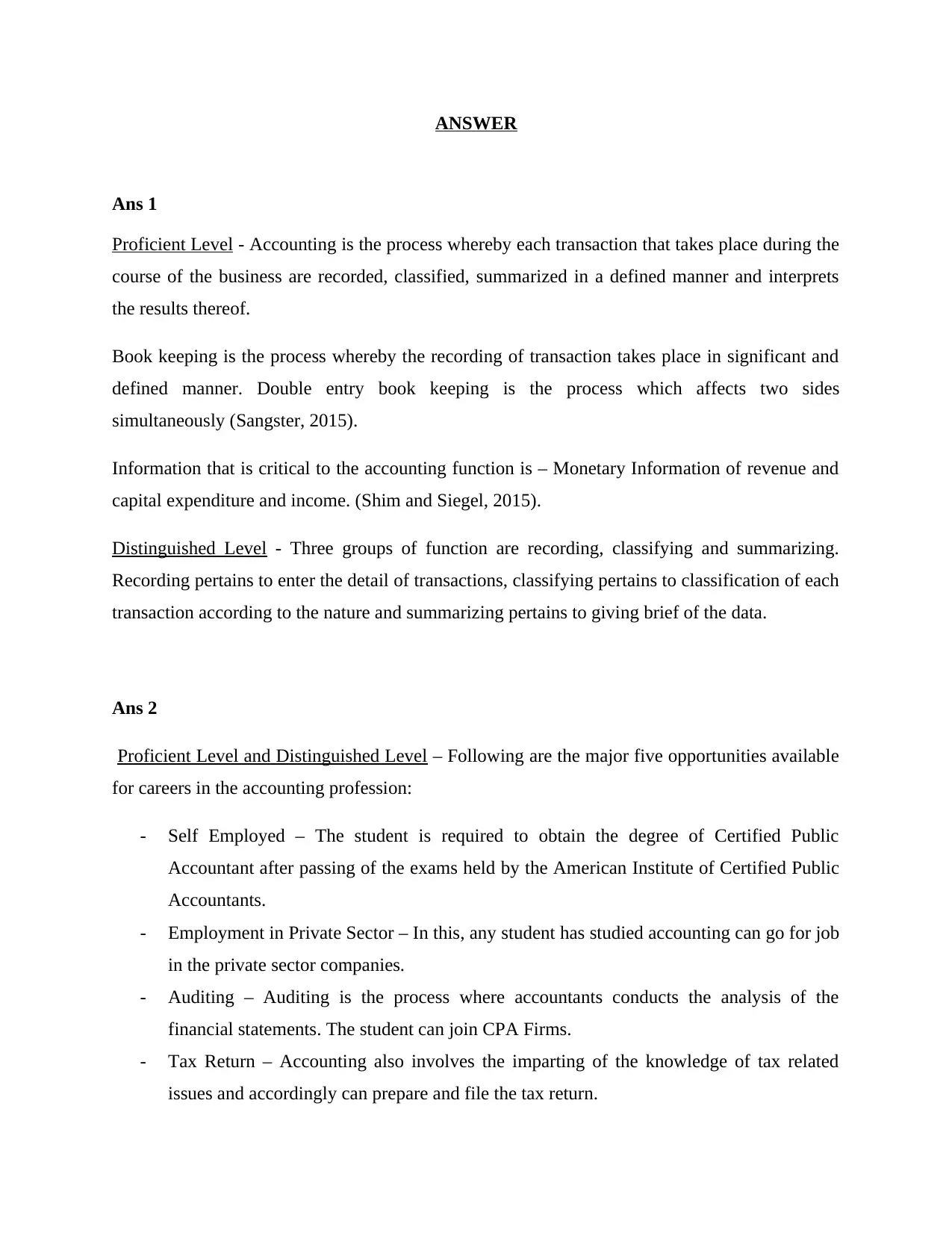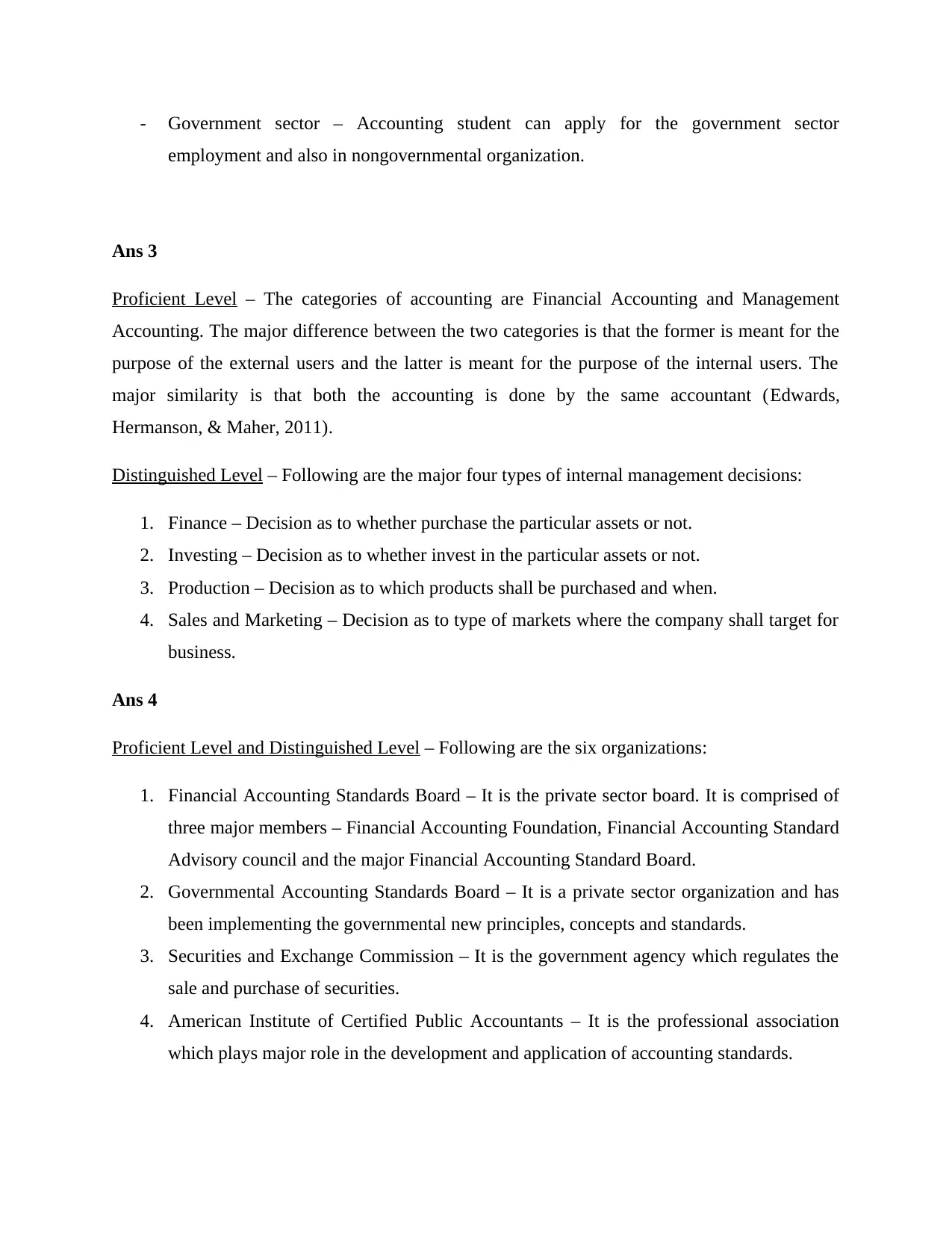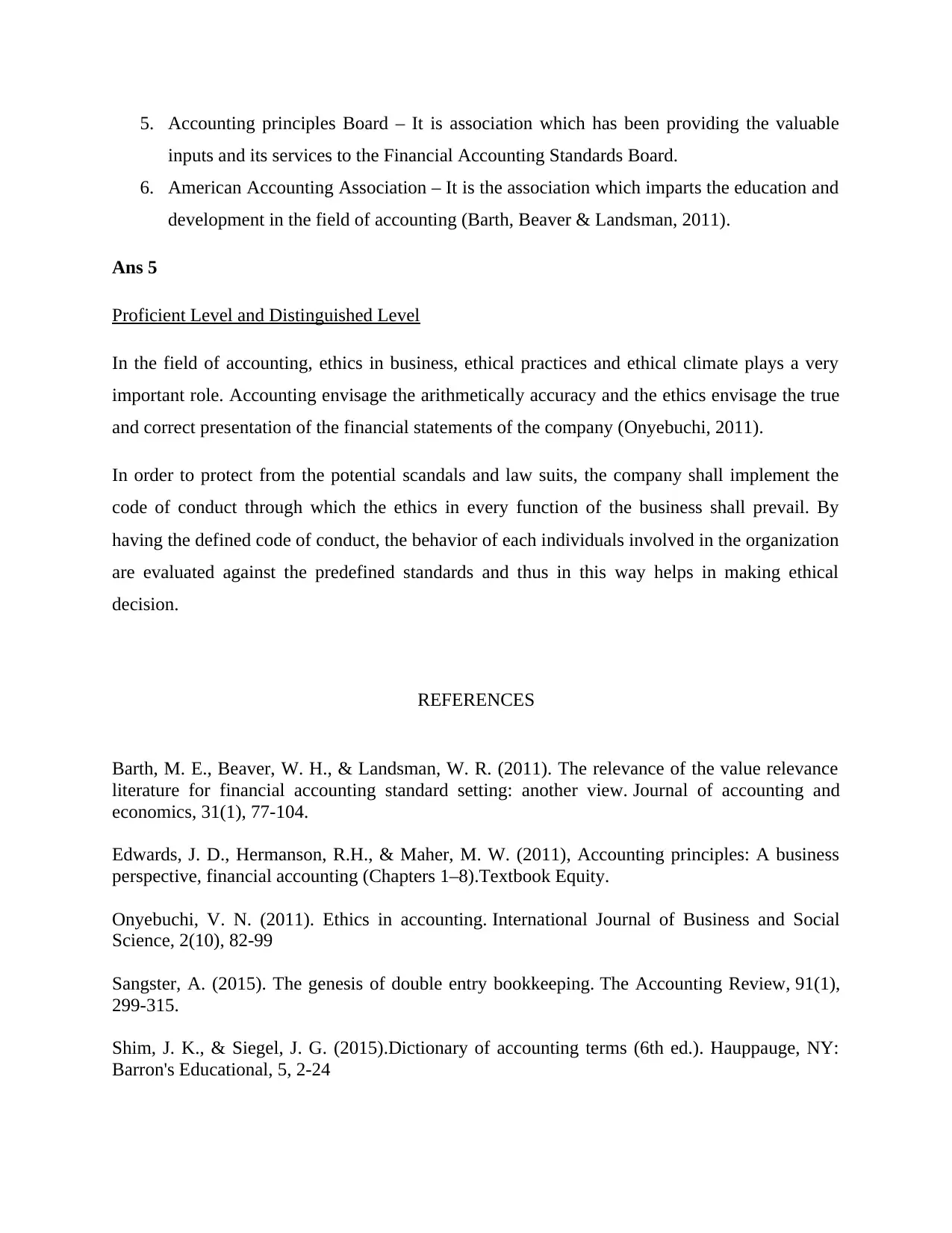Financial Accounting Principles, Career Paths, and Ethics
VerifiedAdded on 2020/05/28
|3
|895
|50
Homework Assignment
AI Summary
This document provides a detailed solution to an accounting assignment, covering key concepts such as the definition of accounting, bookkeeping, and double-entry bookkeeping. It explores essential monetary information and distinguishes between recording, classifying, and summarizing functions. The assignment delves into career opportunities in accounting, including self-employment, private sector jobs, auditing, tax return preparation, and government positions. It also differentiates between financial and management accounting, highlighting their respective purposes and similarities. Furthermore, the solution outlines the roles of various accounting organizations such as the Financial Accounting Standards Board, Governmental Accounting Standards Board, Securities and Exchange Commission, American Institute of Certified Public Accountants, Accounting Principles Board, and American Accounting Association. Finally, the assignment emphasizes the significance of ethics in accounting and business, advocating for the implementation of a code of conduct to ensure ethical decision-making and prevent potential scandals.
1 out of 3








![[object Object]](/_next/static/media/star-bottom.7253800d.svg)